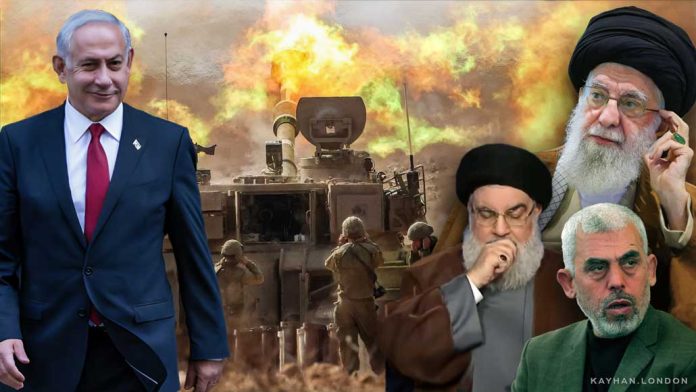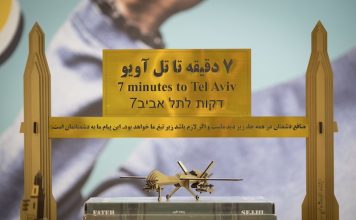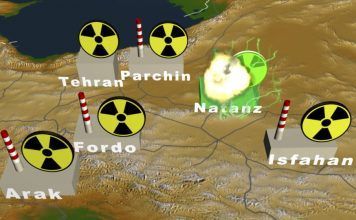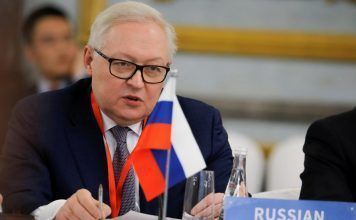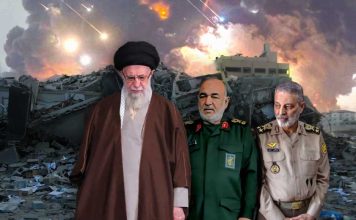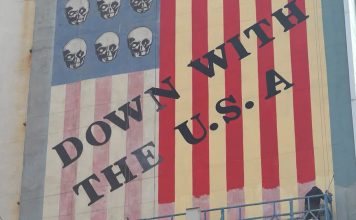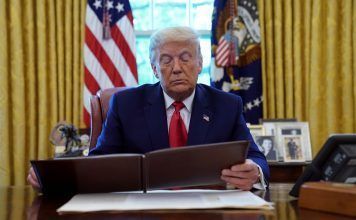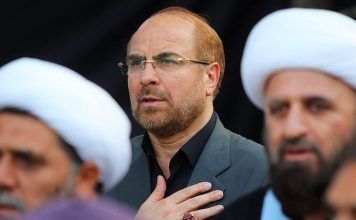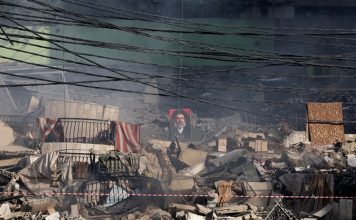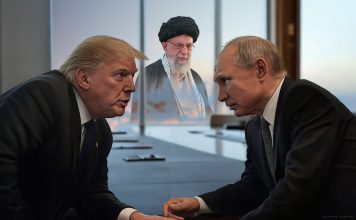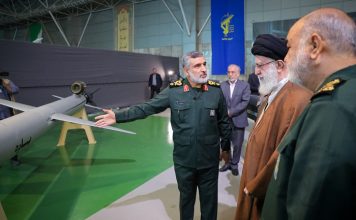Four months into the military operation in the Gaza Strip, Israeli military and security organizations have launched an unprecedented operation to assassinate senior officials of Hamas and Hezbollah.
Except for Salah al-Arouri — Hamas’ second in command killed in an explosion on Jan. 2 in Beirut — most other Hamas’ senior officials were not well known until after their assassinations.
Many had held important positions in the organization; some even had close links with Lieutenant General Ghasem Soleimani, the former commander of the Islamic Revolutionary Guards Corps Qods Force (IRGCQF).
These Hamas leaders worked directly with Ghasem Soleimani’s successor, Brigadier General Ismael Ghaani, and the QF after Soleimani died in a targeted U.S. drone attack on Baghdad International Airport on Jan. 3, 2020.
In comments reported by the Tehran-based Khabar Online on Jan. 3, Ali Akbar Velayati, senior advisor to Iran’s Supreme Leader Ali Khamenei on international affairs, described the elimination of senior paramilitary officials as “cowardly assassinations,” adding: “Not only will the axis of resistance not weaken by these actions, but it will get stronger every day.”
While many in the Islamic Republic have called for “hard revenge” on Israel, particularly after the assassination of Reza Mousavi, QF’s procurement officer in Syria, the IRGC does not appear to be in any hurry to retaliate.
On Jan. 3, the Islamic Republic News Agency (IRNA) published a statement by the IRGC which read: “The sinister wishes of the Zionist regime and its supporters will not distract the prudent and patient [Axis] of Resistance and Hezbollah, and will not derail the rational and necessary drive to defeat the occupiers of Qods [Jerusalem] and usurpers of Palestine.”
Biden: US Delivered Private Message to Iran About Houthi Attacks
Israel is fighting on two fronts, with Hamas in the Gaza Strip and Hezbollah in southern Lebanon. Israel has also intensified its military operations against the IRGC and paramilitary groups under its control in Syria and the Iraqi border.
Some observers believe Israel has drastically changed its approach to fighting its regional enemies.
“Israel is carrying out an unprecedented wave of deadly strikes in Syria targeting cargo trucks, infrastructure, and people involved in Iran’s weapons lifeline to its proxies in the region,” Reuters said on Jan. 8, citing “informed” sources.
“Although Israel has struck Iran-linked targets in Syria for years, including areas where Lebanese armed group Hezbollah has been active, it is now unleashing deadlier, more frequent air raids against Iranian arms transfers and air defense systems in Syria,” it added.
Israel has the unequivocal support of its allies in its fight against terrorism. Since the launch of the Israeli operation in Gaza, codenamed “Swords of Iron,” the U.S. has supplied 10,000 tons of arms and weaponry to Israel.
Germany has also increased its defense exports to Israel tenfold since Oct. 7. The German government has prioritized the approval of permit requests for military equipment for Israel.
Also, despite widespread protests in the UK by pro-Hamas Palestinians, British arms manufacturers continue to ship equipment to Israel.
Several governments also share intelligence with Israel. Joint Israeli and Jordanian military cooperation has foiled arms and drug smuggling operations linked to the Islamic Republic on the Jordanian border.
Israel has released a list of its military operational objectives, with the destruction of Hamas in the Gaza Strip being its top priority, but provided no timeline to achieve this goal.
In an article titled “History Tells Us How the Israel-Hamas War will End,” on Jan. 10, the Times online said: “This very situation has existed in almost every Israeli war since 1948 because the country’s problems are political, not something military force alone can solve.”
“This reality means that instead of ‘Operation Swords of Iron’ ending upon completion of Israeli objectives, it will end as other Israeli wars have-when leading nations [often the U.S.] determine that its military has gone too far,” Times added.
However, given the current situation, the question that comes to mind is whether the assassination of senior commanders of paramilitary groups can curb threats against Israel.
Some analysts argue that to achieve its military plans and goals in Gaza, Israel faces certain limitations, even from its allies. Paramilitary groups operating under the Islamic Republic auspices use “human shield” as a tactic, posing a challenge to the Israeli military units.
There is reportedly fierce competition among top commanders in proxy forces for a more senior position, suggesting that eliminating a few or several senior officials will maintain their operations.
Ideological beliefs and deep-rooted indoctrination, along with financial resources, significantly increase the chances of replacing those commanders who are assassinated. As a result, the leadership vacuum created by their deaths is quickly filled.
The Iranian regime that controls these proxy groups may not care much if some of their leaders are eliminated because it can use other channels to pursue its plans against Israel.
The assassinations cannot be an ultimate solution for Israel, even if it were to target Ismael Haniyeh, head of Hamas’s political wing, and Hassan Nasrallah, Secretary-General of Hezbollah.
Some countries in the region and even several Western governments would like a few of the leaders and senior commanders of the paramilitary groups with whom they have established ties to remain in their posts because they protect these countries’ interests, and their removal can jeopardize that arrangement.
For instance, everyone expected Hezbollah to wage an all-out war on Israel after Oct. 7; but Hassan Nasrollah received messages through several channels warning him not to play with fire, which he has heeded so far.
Tension in the Middle East works to the advantage of some government officials and civilian operators. China and Russia benefit from the constant threats posed or damages inflicted on the Western economy and those with a vested interest in that market.
There are many economic cartels and international brokers whose power to fuel tensions is greater than the politicians who want to defuse the crisis.
Hezbollah, Hamas, Houthis, and the Popular Mobilization Forces differ from Al Qaeda and Daesh (ISIS). The Iran-backed militias are state-sponsored terrorist groups and need financial aid where they operate.
Each of these groups strikes its deal with various governments. While the Popular Mobilization Forces are part of the Iraqi armed forces, some Hezbollah members are Lebanese cabinet ministers or parliament representatives.
Before the events of Oct. 7, some Hamas terrorists ran the government in the Gaza Strip and had diplomatic ties to government officials in Qatar and Egypt. Houthi rebels control a vast area of Yemen, including the capital Sanna.
Terrorists have established deep roots in the Middle East, and any military operation is only the first step toward their permanent demise. Assassinating the leaders of the “resistance” needs other complementary actions. Terrorist organizations continue to exist and grow if their ideological and financial bases are not destroyed.
Also, as Israeli officials have said repeatedly, the head of the octopus is in Tehran. A correct approach to enforcing more stringent sanctions and supporting public protests in Iran against the oppressive rule could be the only practical way for Israel to restore stability to the Middle East, provided its interest is not hostage to the current crisis in the Middle East.

